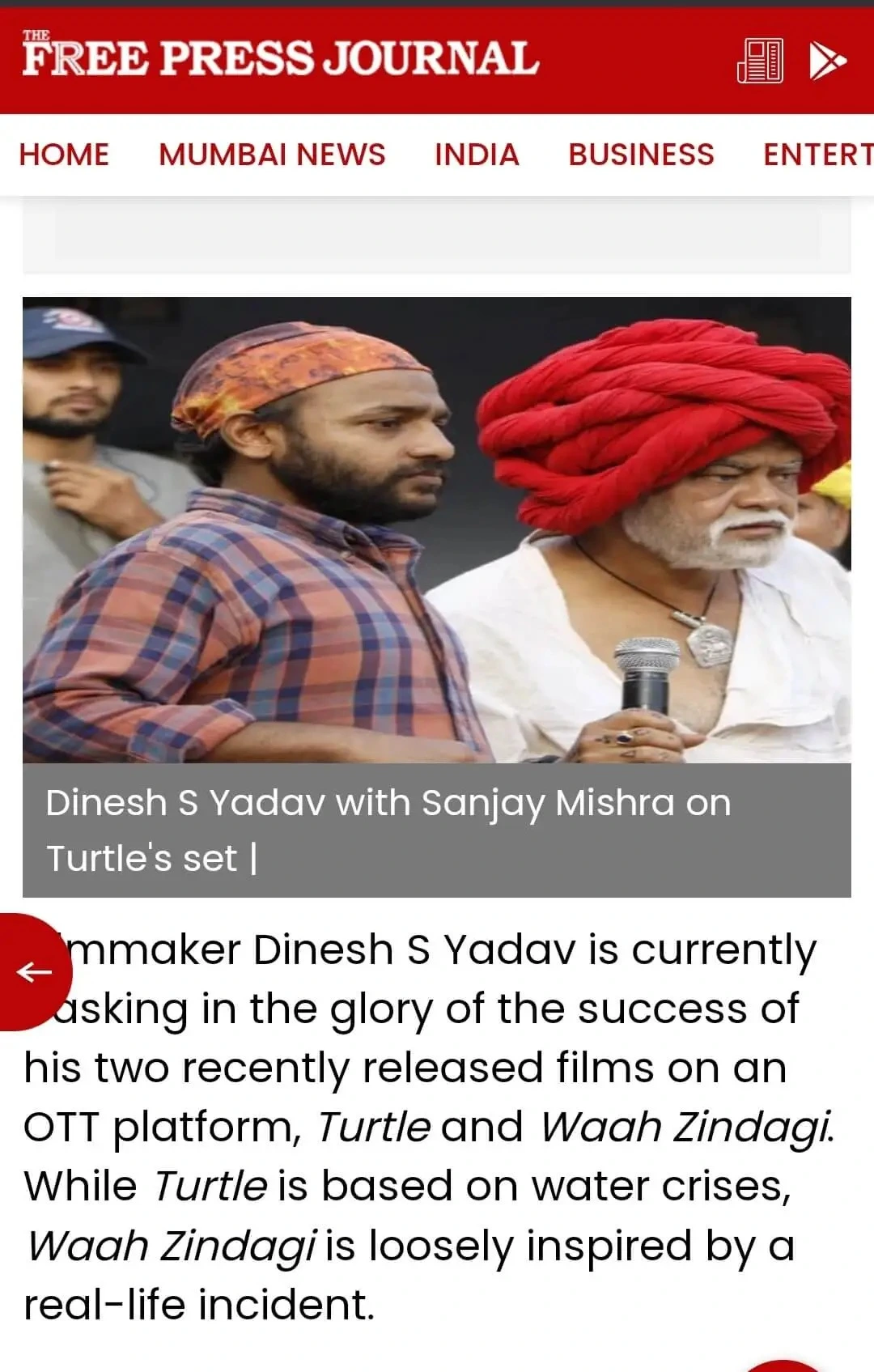Direction
A Director is a storyteller. He takes the Script and transforms it into a visual experience. He has to have an in-depth understanding of Screenwriting, Acting, Cinematography, Editing, Sound, and Production in the process of filmmaking.
Career In Direction
It is evident that the audio-visual medium is the fastest growing medium of communication in the world. Films are made not only in fiction format but also as Documentaries, Training films, Corporate films, Advertisements and Video art. The world of film-making is like a mushroom cloud that is getting bigger and bigger. Every film must have a director, it stands to reason therefore that higher the number of films, higher will be the demand for Directors. A film Director is an artist-technician who is also an expert manager, logistics person, coordinator and chief executive officer-all rolled into one.
It is a difficult job that requires tremendous creative energy, enthusiasm along with loads of patience and humility. A Career in Film Direction is one of extreme creative satisfaction, apart from side benefits of fame and money. But it suits to only those who are ready to go through the grind and put in hard labour as well, such passionate can succeed in this field. Film direction is a challenging field for a number of reasons. One of the biggest challenges is the sheer amount of work and coordination involved in making a film. Directors are responsible for overseeing all aspects of a film’s production, from the initial concept and screenplay, through to casting, rehearsals, shooting, and post-production. This requires a high level of organizational skills and the ability to manage a team of creative and technical professionals. Another challenge of film direction is the need to constantly adapt to changing circumstances. Filmmaking is an unpredictable art form, and directors must be able to think on their feet and make quick decisions in order to keep the production on track.
This can be especially difficult when dealing with complex scenes, unexpected weather, or other unforeseen challenges. Film direction is constantly evolving and changing with the times. As new technologies and techniques are developed, directors are able to push the boundaries of what is possible on screen and create new and innovative forms of storytelling. One of the biggest changes in film direction over the years has been the increasing use of digital technology. Digital cameras, editing software, and special effects have made it easier and more affordable for directors to create high-quality films, and have opened up new possibilities for creative expression.
Most students of Placing Dreams, the best film direction institute in Mumbai join the industry initially as assistant directors and work their way up towards the post of Directors. But there is no hard and fast rule about this and if the students has the capability they might well straightaway become a Director as soon as they pass out from placing dreams Film and Television institute . The syllabus followed at the institute is handcrafted by the experts in the industry and tries to shed light on all the dark corners which might be left in the courses by other institutions.
In conclusion, Placing Dreams is among the top Film Schools in Mumbai. Also, our filmmaking courses in Mumbai come at quite reasonable fees with quality education being within reach for one and all. For those who have too-tight schedules, we have a weekend course for filmmaking in Mumbai. This facility shall provide the much-needed flexibility in your routine without compromising on the quality of your education. Our complete filmmaking course will train you adequately both in theory and the practical aspects of filmmaking. Join Placing Dreams, the resource of first preference for up-and-coming filmmakers, and take a stab at your dream: a video editing and filmmaking career.

Learn FilmMaking by National Award winner Dinesh S Yadav
Learn Filmmaking from the esteemed National Award winner, Dinesh S Yadav, and delve into the art of visual storytelling like never before. Through his expertise and guidance, gain invaluable insights into the intricacies of the craft and master the techniques that set you apart in the industry. Our comprehensive program, curated by Dinesh S Yadav, empowers you with the knowledge and skills necessary to bring your creative vision to life. Immerse yourself in an immersive learning experience and unlock your full potential as a filmmaker under the mentorship of a renowned industry professional. Embark on this transformative journey and pave your way to a successful career in the captivating world of filmmaking.
Syllabus
Chapter 1
- • Know your Ambition
- • What is your Goal?
- • Managing a unit? (Know your unit)
- • Production Process.
- • Technical knowledge. (technicians)
- • Technical knowledge. (technicians)
Chapter 2
- • Pattern of storytelling.
- • Kind of story.
- • Types of scenes.
- • Character sketching
- • Montages.
- • Songs and Poetry.
- • Music designing.
- • Background music, Sync sound, Dubbing
Chapter 3
- • Concept and Project designing
- • Story and Script selection.
- • Story writing.
- • Cast and Crew planning.
- • Location rekkie.
- • Artist selection. (Perfect Casting)
- • Costume and Colour designing.
- • Makeup and Hair designing.
- • Light designing
Chapter 4
- • Scene Designing and Crafting.
- • Shot division.
- i)Combine shot
- ii)Two shot
- iii) C/S, C/U, M/S, W/D/S, O/S/S, EX-W/D/S,
- iv)EX-C/S, Low angle, Top angle, Panning, Tilt up and tilt down,Hand held, Moving shot, Steady cam.
Chapter 5
- • Pitching your project.
- • Scheduling andBudgetingt.
- • Student Assignment
